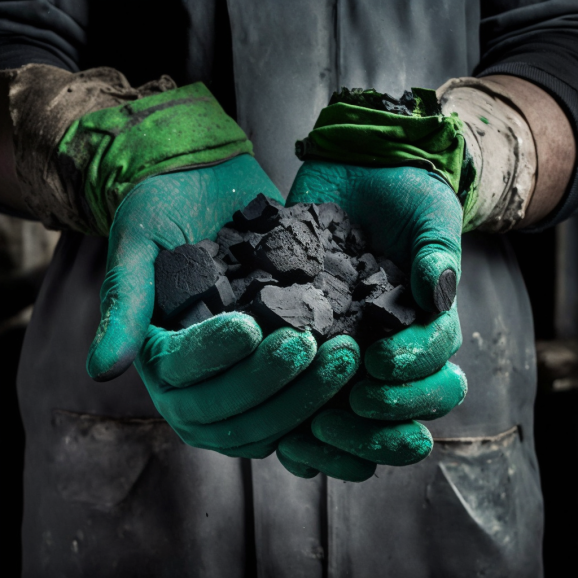Biochar
Biochar is a type of charcoal that is produced by heating organic material, such as seaweed, in an oxygen-limited environment.
This process, called pyrolysis, converts the seaweed into a stable material that can be used as a soil amendment. Seaweed biochar is unique in that it’s typically low in carbon but mineral-rich. But the end product doesn’t always work...
Some research shows that seaweed biochar can help to improve soil structure, water retention, and nutrient availability. It may also have the ability to sequester and store carbon, making it a potential tool for mitigating climate change.
But more research is needed to fully understand the potential benefits and any potential drawbacks of using seaweed biochar in agriculture, has highlighted by researchers based in Machynlleth and Aberystwyth, among others. You can read their scientific paper about using a green seaweed, Ulva, as feedstock for biochar here:
https://www.tandfonline.com/doi/full/10.1080/09670262.2022.2103739
Other references:
More from this category








